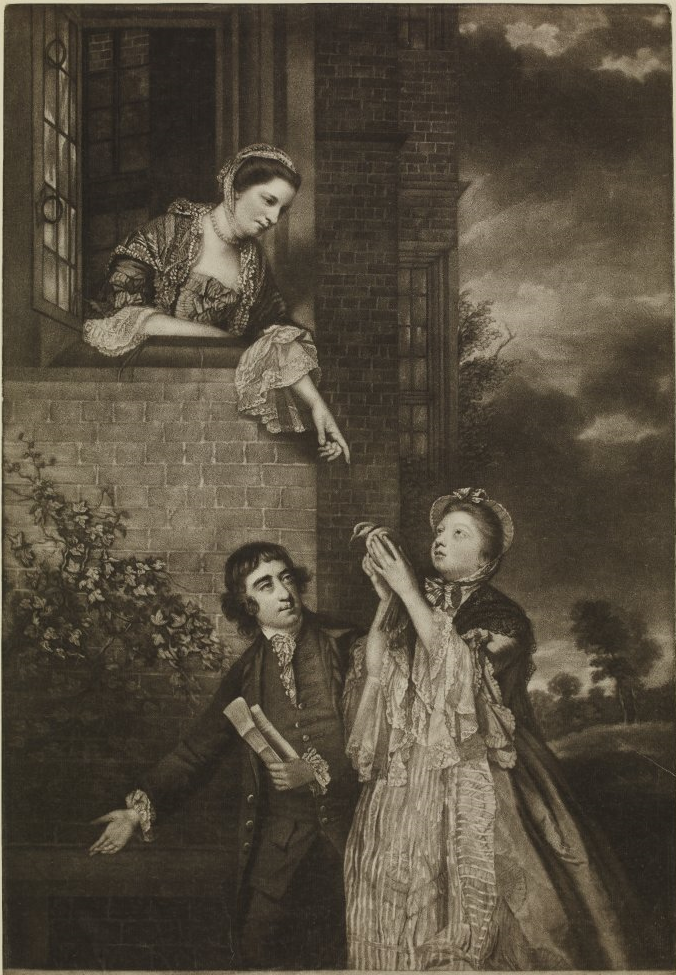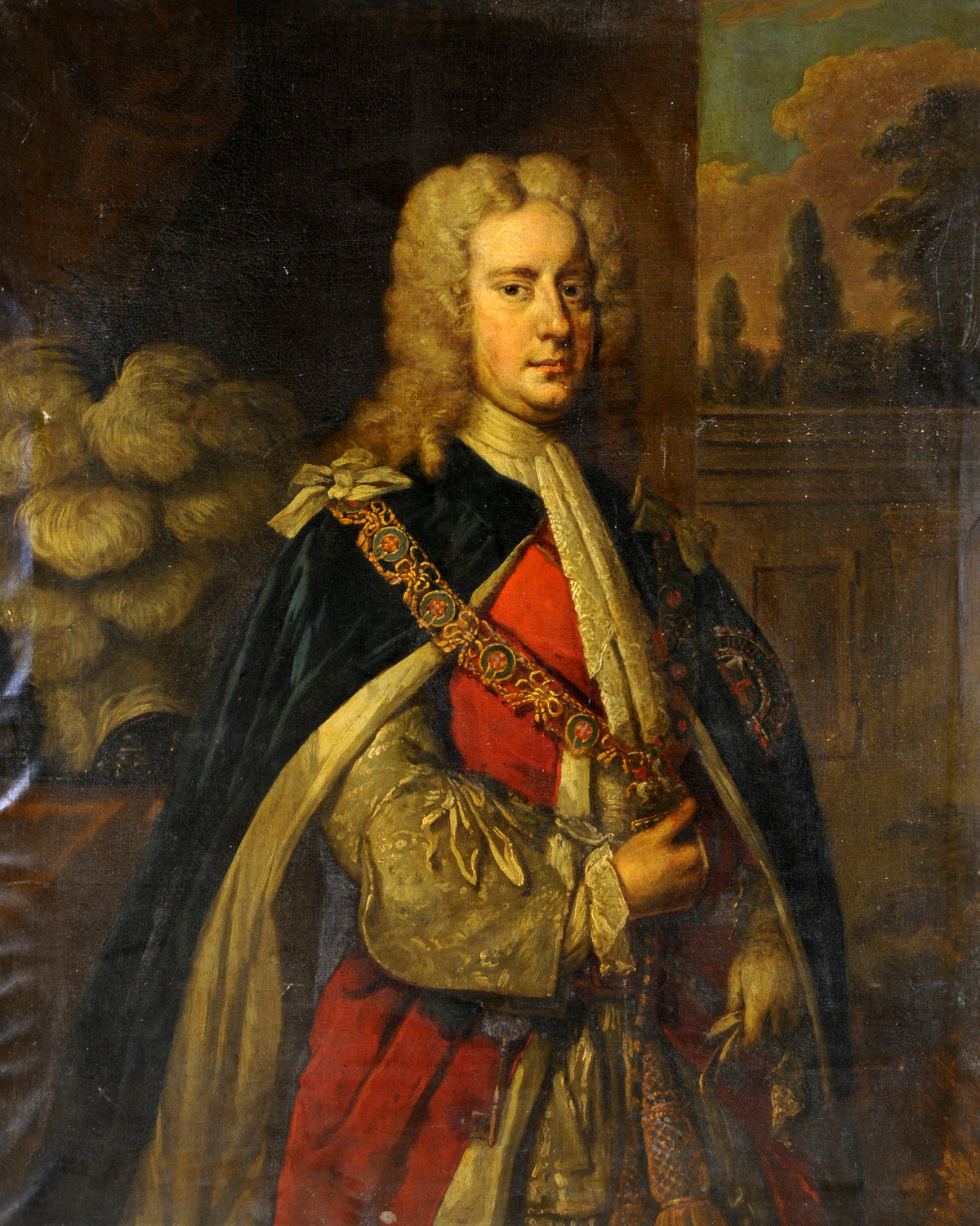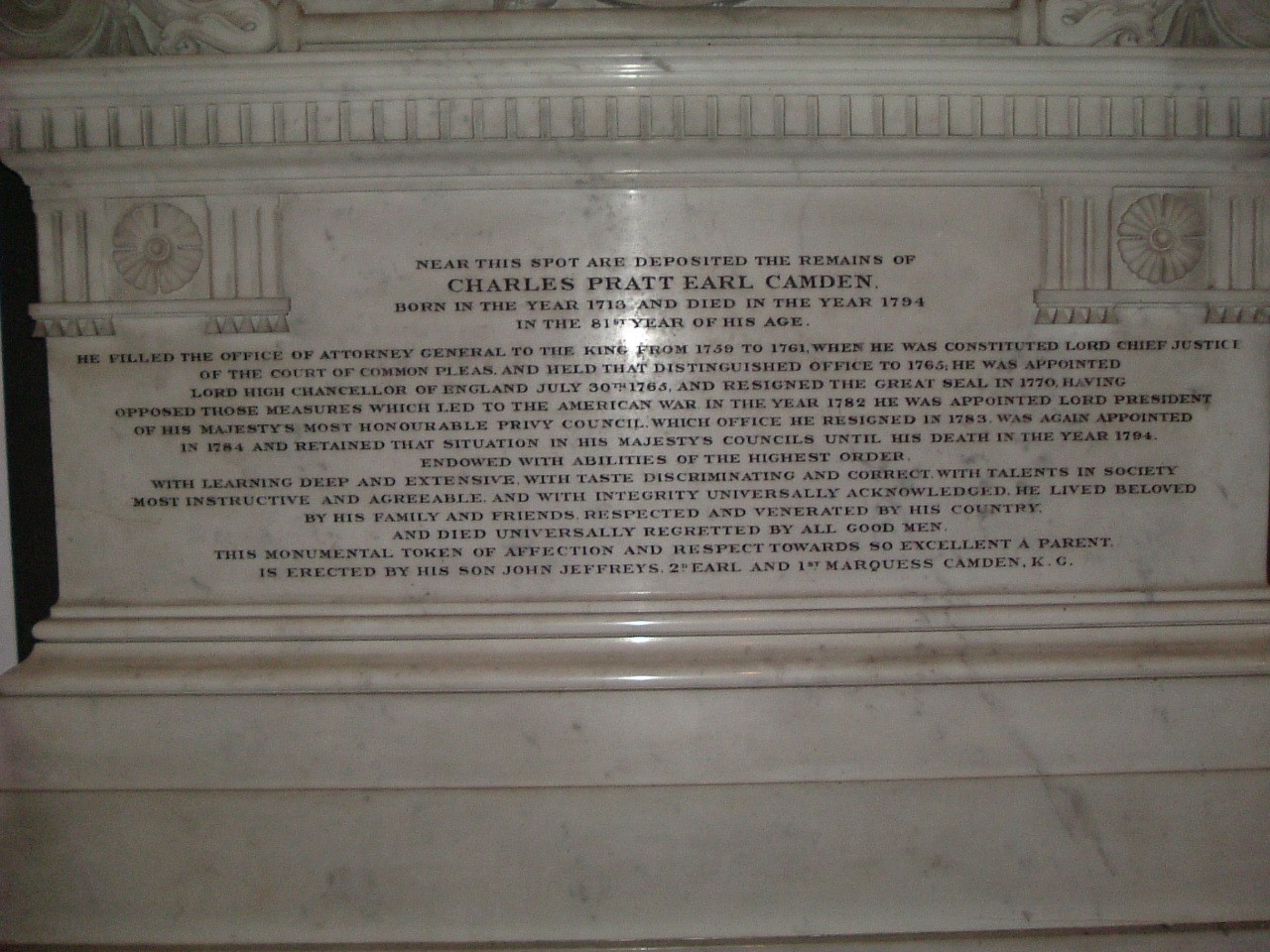|
Second Rockingham Ministry
This is a list of the principal holders of government office during the second premiership of the Charles Watson-Wentworth, 2nd Marquess of Rockingham for four months in 1782. The North ministry resigned on 22 March 1782 after losing the confidence of Parliament following the British defeat at the siege of Yorktown during the American War of Independence. Whig Lord Rockingham, Prime Minister from 1765 to 1766, formed a government. The Rockingham Whigs had generally been sympathetic to the cause of the Colonists and under Rockingham the British government began the negotiations leading to the Peace of Paris that concluded the war. The death of Rockingham on 1 July 1782 caused a split in the ministry. The Home Secretary Lord Shelburne was appointed to succeed him, but several members of the government refused to serve under him and resigned. These "Portland Whigs" (named after their nominal leader, William Cavendish-Bentinck, 3rd Duke of Portland, but in reality led by Charl ... [...More Info...] [...Related Items...] OR: [Wikipedia] [Google] [Baidu] |
Second Premiership Of Charles Watson-Wentworth, 2nd Marquess Of Rockingham
Charles Watson-Wentworth, 2nd Marquess of Rockingham (13 May 1730 – 1 July 1782), styled The Honourable Charles Watson-Wentworth before 1739, Viscount Higham between 1739 and 1746, Earl of Malton between 1746 and 1750, and the Marquess of Rockingham from 1750, was a British Whig statesman and magnate, most notable for his two terms as Prime Minister of Great Britain. He became the patron of many Whigs, known as the Rockingham Whigs, and served as a leading Whig grandee. He served in only two high offices during his lifetime (prime minister and leader of the House of Lords) but was nonetheless very influential during his one and a half years of service. Early life: 1730–1751 Family and military career A descendant of the 1st Earl of Strafford, Lord Rockingham was the second son of Thomas Watson-Wentworth, 1st Baron Malton (1st Earl of Malton from 1734) and the former Lady Mary Finch, daughter of the 7th Earl of Winchilsea. He was brought up at the family's lavish hom ... [...More Info...] [...Related Items...] OR: [Wikipedia] [Google] [Baidu] |
Charles James Fox
Charles James Fox (24 January 1749 – 13 September 1806), styled ''The Honourable'' from 1762, was a British British Whig Party, Whig politician and statesman whose parliamentary career spanned 38 years of the late 18th and early 19th centuries. He was the rival, arch-rival of the Tories (British political party), Tory politician William Pitt the Younger; his father Henry Fox, 1st Baron Holland, a leading Whig of his day, had similarly been the great rival of Pitt's famous father, William Pitt, 1st Earl of Chatham ("Pitt the Elder"). Fox rose to prominence in the House of Commons of Great Britain, House of Commons as a forceful and eloquent speaker with a notorious and colourful private life, though at that time with rather conservative and conventional opinions. However, with the coming of the American War of Independence and the influence of the Whig Edmund Burke, Fox's opinions evolved into some of the most Classical radicalism, radical to be aired in the British Parliament ... [...More Info...] [...Related Items...] OR: [Wikipedia] [Google] [Baidu] |
Leader Of The House Of Commons
The Leader of the House of Commons is a minister of the Crown of the Government of the United Kingdom whose main role is organising government business in the House of Commons of the United Kingdom, House of Commons. The Leader is always a member or attendee of the cabinet of the United Kingdom. The House of Commons devotes approximately three-quarters of its time to debating and explaining government business, such as Bill (law), bills introduced by the government and ministerial statements. The Leader of the House of Commons, with the parties' Chief Whip, chief whips ("the usual channels"), is responsible for organising government business and providing time for non-government (backbench) business to be put before the House of Commons. The position of leader of the House of Commons is currently held by Lucy Powell, who was appointed on 5 July 2024 by Keir Starmer. Responsibilities The current responsibilities of the Leader of the House of Commons are as follows: *Planning ... [...More Info...] [...Related Items...] OR: [Wikipedia] [Google] [Baidu] |
Secretary Of State For Foreign Affairs (UK)
The secretary of state for foreign, commonwealth and development affairs, also known as the foreign secretary, is a Secretary of State (United Kingdom), secretary of state in the Government of the United Kingdom, Government of the United Kingdom, with responsibility for the Foreign, Commonwealth and Development Office. The role is seen as one of the most senior ministers in the UK Government and is a Great Office of State. The incumbent is a member of the Cabinet of the United Kingdom and National Security Council, and reports directly to the Prime Minister of the United Kingdom, prime minister. The officeholder works alongside the other Foreign, Commonwealth and Development Office#Ministers, Foreign Office ministers. The corresponding shadow minister is the Shadow Foreign Secretary. The Foreign Affairs Select Committee also evaluates the secretary of state's performance. The current foreign secretary is David Lammy. He was appointed by Prime Minister Keir Starmer on 5 July 20 ... [...More Info...] [...Related Items...] OR: [Wikipedia] [Google] [Baidu] |
Lord John Cavendish
Lord John Cavendish (22 October 1732 – 18 December 1796) was a British nobleman and politician. Background Cavendish was the youngest son of William Cavendish, 3rd Duke of Devonshire, and his wife Catherine, daughter of John Hoskins. Prime Minister William Cavendish, 4th Duke of Devonshire, Lord George Cavendish and Field Marshal Lord Frederick Cavendish were his elder brothers. He was educated at Newcome's School in Hackney and at Peterhouse, Cambridge. Political career He served as Chancellor of the Exchequer in 1782 and 1783, and was sworn of the Privy Council in 1782. He was a supporter of Lord Rockingham, and subsequently of the Fox-North Coalition that brought the Duke of Portland to power. He lost his seat in the election of 1784, when the coalition fell, and did not return to the House of Commons until 1794, in the family seat of Derbyshire. Family Cavendish lived at Billing Hall, Northamptonshire which he commissioned John Carr to substantially remod ... [...More Info...] [...Related Items...] OR: [Wikipedia] [Google] [Baidu] |
Chancellor Of The Exchequer
The chancellor of the exchequer, often abbreviated to chancellor, is a senior minister of the Crown within the Government of the United Kingdom, and the head of HM Treasury, His Majesty's Treasury. As one of the four Great Offices of State, the chancellor is a high-ranking member of the British Cabinet. Responsible for all economic and financial matters, the role is equivalent to that of a finance minister in other countries. The chancellor is now always second lord of the Treasury as one of at least six Lords Commissioners of the Treasury, lords commissioners of the Treasury, responsible for executing the office of the Treasurer of the Exchequer the others are the prime minister and Commons government whips. In the 18th and early 19th centuries, it was common for the prime minister also to serve as Chancellor of the Exchequer if he sat in the Commons; the last Chancellor who was simultaneously prime minister and Chancellor of the Exchequer was Stanley Baldwin in 1923. Formerl ... [...More Info...] [...Related Items...] OR: [Wikipedia] [Google] [Baidu] |
Augustus FitzRoy, 3rd Duke Of Grafton
Augustus Henry FitzRoy, 3rd Duke of Grafton (28 September 173514 March 1811), styled Earl of Euston between 1747 and 1757, was a British Whig statesman of the Georgian era. He is one of a handful of dukes who have served as Prime Minister of the United Kingdom, prime minister. He became prime minister in 1768 at the age of 33, leading the supporters of William Pitt, 1st Earl of Chatham, William Pitt, and was the youngest person to hold the office until the appointment of William Pitt the Younger 15 years later. However, he struggled to demonstrate an ability to counter increasing challenges to Britain's global dominance following the nation's Great Britain in the Seven Years' War, victory in the Seven Years' War. He was Corsican Crisis, widely attacked for allowing France to annex Corsica, and stepped down in 1770, handing over power to Lord North. Background and education He was a son of Lord Augustus FitzRoy, a captain in the Royal Navy, and Elizabeth Cosby, the daughter of ... [...More Info...] [...Related Items...] OR: [Wikipedia] [Google] [Baidu] |
Lord Privy Seal
The Lord Privy Seal (or, more formally, the Lord Keeper of the Privy Seal) is the fifth of the Great Officers of State (United Kingdom), Great Officers of State in the United Kingdom, ranking beneath the Lord President of the Council and above the Lord Great Chamberlain. Originally, its holder was responsible for the monarch's Privy Seal of England, personal (privy) seal (as opposed to the Great Seal of the Realm, which is in the care of the lord chancellor) until the use of such a seal became obsolete. Though one of the oldest offices in European governments, it has no particular function today because the use of a privy seal has been obsolete for centuries; it may be regarded as a traditional sinecure, but today, the holder of the office is invariably given a seat in the Cabinet of the United Kingdom, and is sometimes referred to as a Minister without portfolio (United Kingdom), minister without portfolio. Since the premiership of Clement Attlee, the position of Lord Privy S ... [...More Info...] [...Related Items...] OR: [Wikipedia] [Google] [Baidu] |
Charles Pratt, 1st Earl Camden
Charles Pratt, 1st Earl Camden, Her Majesty's Most Honourable Privy Council, PC (baptism, baptised 21 March 1714 – 18 April 1794) was an English lawyer, judge and Whig (British political faction), Whig politician who was first to hold the title of Marquess Camden, Earl Camden. As a lawyer and judge he was a leading proponent of civil liberties, championing the rights of the jury (England and Wales), jury, and limiting the powers of the Sovereign state, State in leading cases such as ''Entick v Carrington''. He held the offices of Chief Justice of the Common Pleas, Attorney General for England and Wales, Attorney-General and Lord Chancellor, Lord High Chancellor of Great Britain, and was a confidant of William Pitt, 1st Earl of Chatham, Pitt the Elder, supporting Pitt in the controversies over John Wilkes and American independence. However, he clung to office himself, even when Pitt was out of power, serving in the cabinet for fifteen years and under five different prime ministe ... [...More Info...] [...Related Items...] OR: [Wikipedia] [Google] [Baidu] |
Lord President Of The Council
The Lord President of the Council is the presiding officer of the Privy Council of the United Kingdom and the fourth of the Great Officers of State, ranking below the Lord High Treasurer but above the Lord Keeper of the Privy Seal. The Lord President usually attends and is responsible for chairing the meetings of the Privy Council, presenting business for the approval of the Sovereign. The office and its history The Privy Council meets once a month, wherever the sovereign may be residing at the time, to give formal approval to Orders in Council. Only a few privy counsellors need attend such meetings, and only when invited to do so at the government's request. As the duties of the Lord President are not onerous, the post has often been given to a government minister whose responsibilities are not department-specific. In recent years it has been most typical for the Lord President also to serve as Leader of the House of Commons or Leader of the House of Lords. The Lord Pre ... [...More Info...] [...Related Items...] OR: [Wikipedia] [Google] [Baidu] |
Edward Thurlow, 1st Baron Thurlow
Edward Thurlow, 1st Baron Thurlow, PC (9 December 1731 – 12 September 1806), was a British lawyer and Tory politician who sat in the House of Commons from 1765 to 1778 when he was raised to the peerage as Baron Thurlow. He served as Lord High Chancellor of Great Britain for fourteen years and under four Prime Ministers. Early life Born at Bracon Ash, Norfolk, Thurlow was the eldest son of Reverend Thomas Thurlow. Thomas Thurlow, Bishop of Durham, was his brother. He studied at King's School, Canterbury and at Gonville and Caius College, Cambridge. However, he was forced to leave Cambridge in 1751 without a degree after coming into conflict with the authorities of the university. He was for some time articled to a solicitor in Lincoln's Inn, but in 1754 he was called to the Bar, Inner Temple. After a slow start, Thurlow eventually established a successful legal practice. He was made a King's Counsel in 1761 and was elected a bencher of the Inner Temple in 1762. Politica ... [...More Info...] [...Related Items...] OR: [Wikipedia] [Google] [Baidu] |
Lord Chancellor
The Lord Chancellor, formally titled Lord High Chancellor of Great Britain, is a senior minister of the Crown within the Government of the United Kingdom. The lord chancellor is the minister of justice for England and Wales and the highest-ranking Great Officers of State (United Kingdom), Great Officer of State in Scotland and England, nominally outranking the Prime Minister of the United Kingdom, prime minister. The lord chancellor is appointed and dismissed by the British monarchy, sovereign on the advice of the prime minister. Prior to the Acts of Union 1707, union of England and Scotland into the Kingdom of Great Britain, there were separate lord chancellors for the Kingdom of England (including Wales) and the Kingdom of Scotland. Likewise, the Lordship of Ireland and its successor states (the Kingdom of Ireland and History of Ireland (1801–1923), United Kingdom of Great Britain and Ireland) maintained the office of Lord Chancellor of Ireland, lord chancellor of Ireland u ... [...More Info...] [...Related Items...] OR: [Wikipedia] [Google] [Baidu] |







